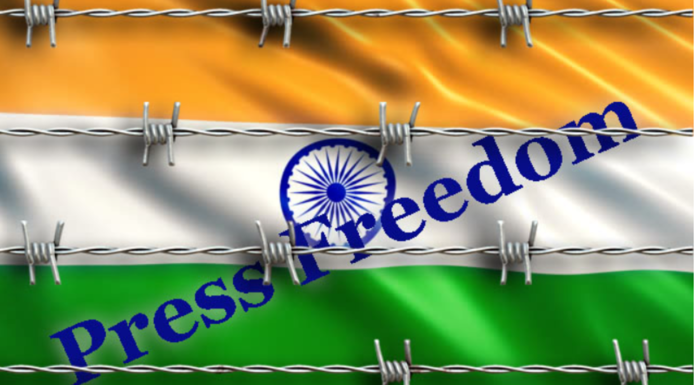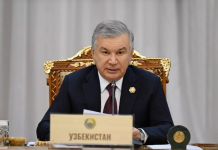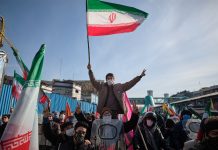By: Dr. Sahibzada Muhammad Usman
India’s standing as the biggest democracy in the world is being threatened by Prime Minister Narendra Modi’s moves to repress press freedom, which have led to a loud Hindu nationalism in news coverage that supports the official narrative.
Democracy is in danger when populist politicians use emergency measures to silence criticism. Noting that populist and authoritarian leaders, of whom Prime Minister Modi has fallen firmly within, are known for abusing their authority to intimidate, suppress, silence, or penalize independent news media. Journalists have put their jobs and lives in danger to cover what the government does not want them to since Mr. Modi assumed power in 2014.
In the yearly press freedom ranking produced by the group Reporters Without Borders, India dropped to 150 in 2022, the lowest-ever rating out of 180 nations. As a consequence, self-censorship, as well as a loud Hindu nationalism in news coverage that supports the official narrative, have grown.
The government’s use of emergency regulations to stop a BBC documentary titled “The Modi Question” is the most recent example of its intolerance for critical reporting. The documentary brought up serious concerns regarding Mr. Modi’s involvement in a catastrophic outbreak of violence in Gujarat, India, in 2002, during which more than 1,000 people, most of them Muslims, were massacred over a period of several weeks.
Despite the fact that many important details about the Gujarat rioting were previously unknown, the BBC documentary revealed, among other things, a 2002 British government report that held Mr. Modi “directly responsible” for the tense atmosphere that led to rioting and accused the Gujarat state government of pressuring the police not to intervene as Muslims were beaten, raped, and burned to death. A team of investigators assembled by the Indian Supreme Court decided not to prosecute Mr. Modi in 2012 because there was insufficient evidence, despite having a long denial of involvement in the violence.
However, two decades later, Modi has struggled to dispel lingering concerns about his involvement in the violence, particularly given that the government has repressed free debate about his particular form of Hindu nationalism. However, as a recent Human Rights Watch study pointed out, the BJP’s doctrine of Hindu supremacy has penetrated the legal system and the media, giving party followers the license to intimidate, harass, and assault religious minorities, especially Muslims, with impunity.
The BBC’s two-part program questioned everything. Despite no intentions to broadcast it in India, significant chunks quickly went viral on social media. The government replied with the rage that has come to represent it. The Ministry of Information and Broadcasting barred the documentary because it was seen as “hostile propaganda and anti-India rubbish” with a “colonial mindset.” Twitter and YouTube were also mentioned as having cooperated with the mandate.
It was anticipated that preventing the distribution of even brief clips from the movie would spark far greater interest than there had previously been. Human rights organizations protested what one Indian opposition politician referred to as “raging censorship.” Student and opposition organizations started planning viewings, which led to attempts to thwart them. Students at Jawaharlal Nehru University in New Delhi viewed the documentary on their smartphones despite the authorities cutting off power and an internet connection to prevent the film from showing.
As a result, what started as a possible embarrassment for Mr. Modi became a controversy about press freedoms and a litmus test for the rest of the world. Leaders in the United States and Europe have aggressively courted Mr. Modi as they seek his backing for Ukraine in its conflict with Russia, a subject he has shown ambivalence about, or as a counterweight to China’s burgeoning economic might. For instance, Apple has said it will begin manufacturing the iPhone 14 in India, marking what experts see as a steady shift away from its dependence on China.
The British government has said that the BBC is independent but has not said anything about the decision not to air the show. Prime Minister Rishi Sunak responded that he was “not sure I agree at all” with the characterization that the honorable gentleman has put forward when asked about the movie and Mr. Modi’s role in anti-Muslim violence by an opposition lawmaker. However, he did affirm that Britain generally opposes persecution. According to Reuters, the White House is in talks with India about a potential state visit by Mr. Modi later this year. New Delhi will serve as the host city for the G20 conference in September.
India is an important player as China and Russia try to alter the balance of power on the globe. Yet, in their inevitable interactions with Mr. Modi, American and European leaders should keep in mind that India can only fully assume its global role as a democracy with a free and vibrant press. Democracy is in danger when populist politicians use emergency rules to stifle opposition, as Mr. Modi’s own party knows firsthand: during the dark days of emergency rule from 1975 to 1977, the BJP was crushed, and many of its officials were imprisoned.
About Author:
Dr. Sahibzada Muhammad Usman
Research Scholar and Academic; Ph.D. in Political Science at the University of Pisa, Italy. Dr. Usman has participated in various national and international conferences and published 30 research articles in international journals.






